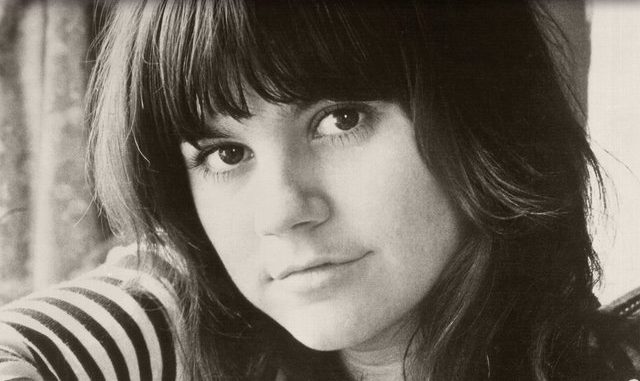
All artists evolve over time, and some drift a long way from what the listeners’ perception of what their “roots” might be. Linda Ronstadt is one of the artists that makes the question, ”what is americana?” so difficult to answer. If we assume that we are thinking about it as the point at which the various homegrown American music styles meet, then she is undoubtedly one of the key performers. She said in an interview with Debbie Kruger in 1998: “I don’t record (any type of genre of music) that I didn’t hear in my family’s living room by the time I was 10. It just is my rule that I don’t break because … I can’t do it authentically” While this may be true, it’s hard to escape the feeling that for at least a portion of her career she was swept up by the record industry which crafted an image of her as a ‘rock chick’. She has acknowledged that she was “artificially encouraged to kinda cop a really tough attitude”, and this is reflected in the increasingly mainstream rock-oriented music. This phase came to a natural conclusion with ‘Mad Love’ from which anything remotely ‘roots’ had been wiped away. ‘Mad Love’ is a fine new wave/pop album, but it isn’t americana.
Her importance to americana is in her early albums. Forming The Stone Poneys in the mid-sixties with Bobby Kimmel, Ronstadt became the main singer only on their second album. By the time the group dissolved she was the obvious star and by the time of her debut solo album the blend of folk, country and rock that would be her trademark was already in place. Comparing the version of ‘Silver Threads and Golden Needles’ on ‘Hand Sown… Home Grown’ with the one on ‘Don’t Cry Now’ her singing is already assured and confident. ‘Silk Purse’ was produced by Elliot Mazer as a more country-oriented album, and it is certainly the least essential of her early albums and is notable mostly for the touring band formed to support it, consisting mostly of the future Eagles.
The next album ‘Linda Ronstadt’ was a giant leap forward, with most of the elements that would lead to her breakthrough with ‘Heart Like A Wheel’ in place. Ronstadt’s autobiography ‘Simple Dreams: A Musical Memoir’ highlights this as the point at which she felt in control of her career. And it shows with her already good voice improving in tone and confidence with each album. Her career took of from there but after ‘Don’t Cry’ the music while still for the most part excellent did start to lose the distinctiveness of her early career.
Her back to the roots albums of the ‘Feels Like Home’ and ‘We Ran’ don’t get the attention they deserve. The music industry had moved on and they were never going to sell as well as her seventies peak, but they are worthy successors to ‘Don’t Cry Now’
Her mid-eighties career was taken up with a trilogy of albums featuring traditional jazz and pop standards. Recorded with bandleader Nelson Riddle they marked the start of ten years of albums built around individual musical genres, including country and operetta, as well as revisiting the Spanish language music that was a big part of her childhood listening.
While her commercial success in the seventies allowed Ronstadt the freedom to pursue the less commercial music that she loves, the fact that she kept returning to folk, country and roots-rock suggests that she knew where her strengths lay. Linda Ronstadt’s legacy is as an interpreter and populariser of songs from right across the American musical spectrum. When I picked ‘Don’t Cry Now’ as a ‘Classic Americana Album’ on AUK I said: “As one of the biggest selling female artists of the last 50 years she deserves her place as one of the key singers of other peoples’ songs.”
Where to Start:
There are numerous compilations but most of them are single CD fillets that inevitably leave off much that you would want to hear.
‘The Best of Linda Ronstadt: The Capitol Years’ is all four of her formative albums, from ‘Hand Sown… Home Grown’ to ‘Heart Like a Wheel’ with some bonus tracks on a 2CD set. By adding a copy of ‘Don’t Cry Now’ you will have most of the important Ronstadt music.
The Stone Poneys three albums are available, but I would suggest auditioning then on the streaming platform of your choice. ‘Hand Sown… Home Grown’ is light years ahead of what was, even in 1967, a slightly dated sound.
If you want to investigate some her less americana centred albums, then the power pop of ‘Mad Love’ and the new age ‘Winter Light’ would be my suggestions.



Wonderful appreciation of Ronstadt. There is a rare clarity in her voice that combined power and tenderness. Linda was often surrounded by devoted players. Seeing and hearing her live in a club or an arena could be, on the right night, transformational for tough guys. Sigh…
I haven’t heard anything from Linda Ronstadt for a long time. An interesting read and I will revisit her music now.